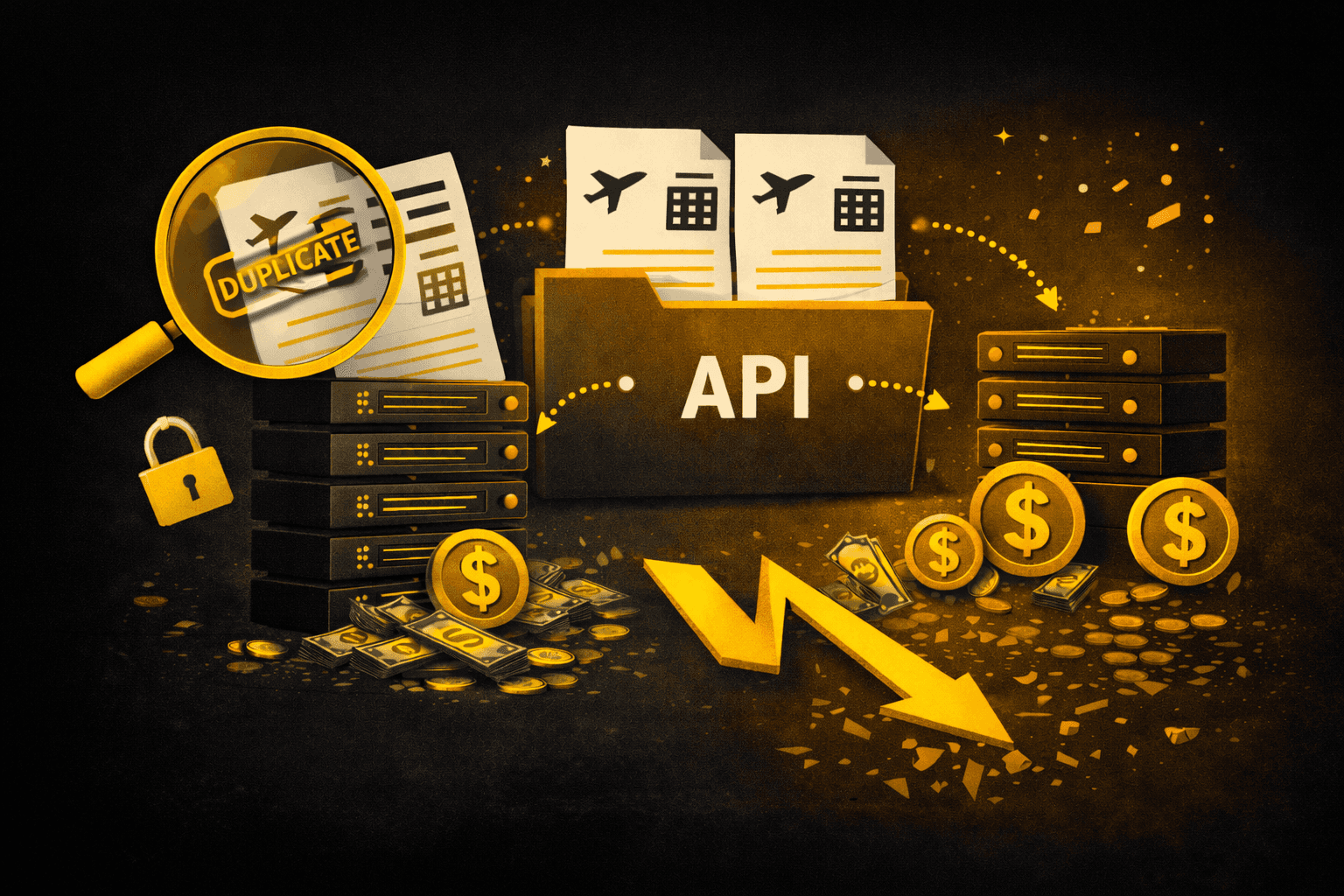Travel APIs Explained: Boosting Efficiency and Revenue for the Travel Industry
A straightforward guide on how travel APIs streamline operations, enable real-time bookings, and unlock revenue opportunities for travel companies.
Think of APIs as the electrical outlets of the travel industry—they allow different systems, such as your website and your suppliers, to seamlessly connect and share information. This means faster bookings, real-time pricing, smoother customer experiences, and ultimately, a stronger competitive advantage.
1. Why APIs Matter to Your Business
Picture manually confirming bookings, checking availability, and updating rates across multiple systems—this manual process is slow, expensive, and error-prone. APIs automate these tasks, significantly improving your efficiency and reducing errors.
Real-World Example: A leading hotel chain implemented APIs, reducing their booking processing time from 15 minutes per booking to just 30 seconds. This drastically improved customer satisfaction and boosted their operational efficiency.
Quick Takeaway: APIs significantly cut operational costs, reduce errors, and open up new revenue opportunities.
2. Understanding Travel APIs the Easy Way
Travel APIs function like direct phone lines between your business and suppliers such as hotels and airlines. When your customer searches for a hotel room or flight, APIs instantly fetch availability, rates, and booking options from suppliers.
Imagine it as having a personal assistant who instantly contacts every hotel or airline to find the best deals and availability.
Typical scenarios include:
Instant hotel room availability checks
Real-time flight bookings
Dynamic price updates
Quick Takeaway: APIs enhance customer experience by providing immediate, accurate booking options.
3. Types of Travel APIs Your Business Should Consider
Hotel APIs (e.g., Expedia, TBO, Volt): Real-time availability, competitive rates, and instant reservations.
Flight APIs (e.g., Amadeus, airline direct connections): Immediate flight bookings and up-to-date pricing.
Car Rental & Activities APIs: Quick booking confirmations for car rentals, tours, and transfers.
Payment APIs: Secure, frictionless transactions and improved payment processing.
Quick Takeaway: Each type of API directly enhances a specific area of your business operations, improving efficiency and customer satisfaction.
4. Implementing APIs Without Getting Technical
Typical API Implementation Timelines:
Hotel API integration: 2-4 weeks
Full-scale flight API (GDS) integration: 2-4 months
Team Requirements:
Usually, 1-2 technical team members are needed, dedicating approximately 20-40 hours.
Quick Takeaway: API integration is practical, affordable, and manageable even without extensive technical resources.
5. Addressing Common Concerns
Compatibility: Even if your current website isn't built for APIs, third-party tools can easily bridge the gap.
Vendor Reliability: Always choose vendors with strong reputations, guaranteed uptime, solid references, and clear documentation.
Supplier Relationships: Existing relationships and contracts typically transition smoothly, often improving your operational collaboration.
Quick Takeaway: Anticipating common issues ensures smooth integration and ongoing operations.
6. Measuring Your Success Clearly
Essential KPIs include:
Increased booking conversion rates
Higher average booking values
Improved customer satisfaction scores
Real-World Example: A travel agency boosted bookings by 40% using dynamic pricing APIs.
Quick Takeaway: Clear KPIs help quantify the tangible benefits and ROI of API investments.
7. Practical Next Steps to Implement APIs
Audit current manual processes to pinpoint efficiency gaps.
Prioritize APIs based on business impact versus implementation complexity.
Vendor Evaluation Checklist: Assess uptime reliability, customer support quality, scalability, and clear fee structures.
ROI Calculator Framework: Project potential savings, revenue uplift, and overall business impact.
Quick Takeaway: A structured approach ensures successful integration and maximum return on investment.
Technical Terms Made Easy
REST: A simple standard enabling easy communication between software systems.
JSON: A widely-used, straightforward format for exchanging data.
Endpoint: A specific web address used by APIs to exchange information.
What Your IT Team Needs to Know:
Vendor documentation and API support
Key integration points
Essential security and compliance standards
Common Challenges and Solutions:
Data synchronization: Clear documentation and regular checks can mitigate synchronization issues.
Performance delays: Selecting reputable vendors ensures consistent performance.
Quick Takeaway: Basic technical familiarity ensures confident decision-making and effective communication with technical teams.
By clearly connecting technical concepts to practical business outcomes, such as faster bookings, increased revenue, enhanced customer satisfaction, and operational efficiency, APIs become essential tools for strategically advancing your travel business.
Volt, for instance, provides modular, AI-enhanced APIs specifically designed to streamline hotel, flight, and activity bookings, allowing your travel business to quickly leverage cutting-edge technology to enhance efficiency, customer satisfaction, and profitability.




